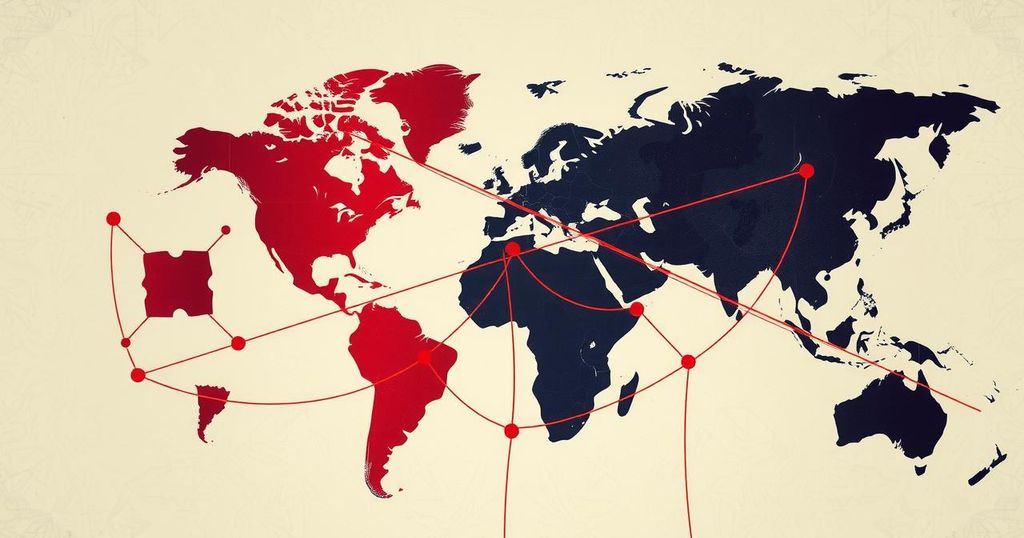Fallout from Trump-Zelenskyy Showdown: Key Global Reactions

The contentious interaction between Trump and Zelenskyy has resulted in detrimental effects for Ukraine, as its leader faced public humiliation and failed to secure vital agreements. Europe is expressing anxiety over the reliability of US support, while Russia and China appear to gain from the rift. India adopts a neutral position, fostering dialogue and international cooperation.
US President Donald Trump referred to his confrontation with Ukrainian President Volodymyr Zelenskyy as “great television,” but the diplomatic fallout has been disastrous. Such a public humiliation of an ally is unprecedented, and reactions from global leaders indicate widespread concern regarding the implications of Trump’s behavior. As nations assess the fallout, it is evident that at least one country benefits from these developments, while Ukraine is left in a precarious position.
Ukraine emerged as the principal victim in this scenario. Zelenskyy not only faced humiliation but also failed to secure a “minerals deal” with the US that would provide access to valuable resources. Republicans like Senator Lindsey Graham voiced doubts about future dealings with Zelenskyy, suggesting a potential end to American aid to Ukraine. Given that the US is crucial for Ukraine’s ongoing resistance, a loss of support would be critical for the nation’s war effort.
Europeans are expressing significant anxiety following the incident. Trump’s unpredictable nature raises alarms about the reliability of the US as an ally, confirming Europe’s fears that it cannot depend on American support. EU policy chief Kaja Kallas underscored this sentiment, suggesting the necessity for a new leader. European leaders, including French President Emmanuel Macron, defended Zelenskyy against Trump, but Europe lacks the military capacity to support Ukraine independently if US backing diminishes.
In stark contrast, Moscow appears emboldened by the situation. The confrontation hinders Ukraine’s military efforts while exacerbating rifts within NATO, which Russia views favorably. Kremlin officials publicly expressed their delight at the perceived weakening of Zelenskyy, interpreting the fallout as a potential opportunity to negotiate more favorably with Ukraine under a different leadership.
Beijing, while avoiding overt commentary, likely sees advantages in the outcome. As US allies grow uneasy with Trump’s foreign policy, some may consider China an alternative partner, creating a strategic vacuum. The stalling of the minerals deal between the US and Ukraine further undermines US efforts to lessen reliance on Chinese rare earth minerals, contributing to China’s strategic interests in the region.
New Delhi’s response to the situation will likely be measured and cautious. India’s government celebrates the successful past interactions with Trump but will refrain from taking an explicit position on the current events. Prime Minister Narendra Modi’s solidarity with other leaders advocating for peace signals India’s commitment to international law, even as it maintains a neutral stance regarding the Ukraine crisis.
The recent Trump-Zelenskyy confrontation has significant diplomatic ramifications. Ukraine stands to lose vital support, raising concerns in both Europe and Washington regarding the future of their alliance. Moscow and Beijing are the unexpected benefactors, leveraging the rift to their advantage. Meanwhile, New Delhi remains strategically neutral, favoring diplomatic resolutions without explicit alignment. The situation highlights the vulnerability of international alliances in the face of unpredictable leadership.
Original Source: indianexpress.com







